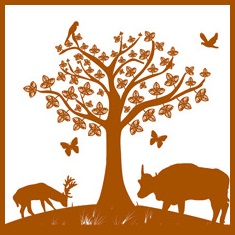Our program is designed to teach students about the importance of protecting the environment and how they can make a positive impact on the world around them. Here’s what you can expect from our program:
Introduction to Environmental Issues We start by introducing students to various environmental issues like air pollution, water pollution, deforestation, climate change, and biodiversity loss. Through interactive activities and discussions, we help students understand the causes and effects of these issues.
Understanding Natural Systems Students learn about natural systems and how they work. This includes ecosystems, food chains, and the interdependence of living organisms. We use interactive activities and visual aids to make this learning experience fun and engaging.
Waste Management Students learn about the different types of waste and how they can be managed. This includes reducing, reusing, and recycling waste. Through hands-on activities, students learn how to sort and manage waste effectively.
Energy Conservation Students learn about the importance of energy conservation and how they can conserve energy in their daily lives. This includes reducing energy consumption, using renewable energy sources, and understanding energy efficiency. Through interactive activities and games, students learn how to make their homes and schools more energy-efficient.
Water Conservation Students learn about the importance of water conservation and how they can conserve water in their daily lives. This includes reducing water consumption, understanding water usage, and how water is treated and distributed. We use visual aids and interactive activities to make this learning experience fun and engaging.
Sustainable Living Students learn about sustainable living and how it can be achieved through the use of sustainable materials, green technologies, and sustainable practices. We provide hands-on activities that show students how to implement sustainable practices in their daily lives.
Outdoor Education Students are taken on field trips to natural areas to learn about nature and the environment. This includes activities like hiking, camping, and bird watching. Through these activities, students learn about the environment and the importance of protecting it.
Citizen Science: We encourage students to participate in citizen science projects to collect data and contribute to scientific research on environmental issues. Through these projects, students learn about scientific research and the role they can play in addressing environmental issues.
Action Plan: Finally, we provide students with the opportunity to develop an action plan to address an environmental issue in their community. We guide them through the process of identifying an issue, developing a plan of action, and implementing the plan. We encourage students to take an active role in protecting the environment and making a positive impact in their communities.
We hope you found this overview of our environmental education program for students informative. Join us in our mission to empower our youth to protect and conserve the environment for a better future.

